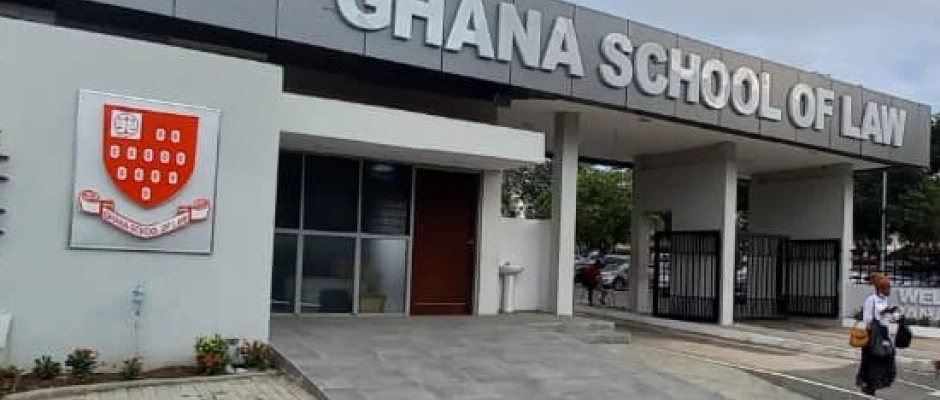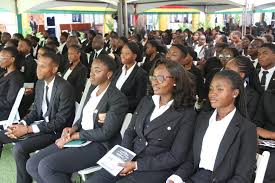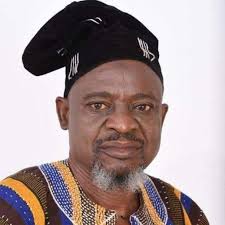The Government of Ghana is set to embark on transformative move in its legal education reforms as it intends to intoduce the long-awaited Legal Education Bill for the consideration of Parliament, a move described by its proponents as a major step towards democratizing access to the legal profession.
Majority Chief Whip and Member of Parliament for South Dayi, Rockson-Nelson Dafeamekpor, has vowed that the bill will be passed under a certificate of urgency, signalling its importance to the legislative agenda and fulfilling a key campaign promise of the ruling National Democratic Congress (NDC) and President John Dramani Mahama.
Speaking passionately about the bill, Hon Dafeamekpor emphasized that this legislative reform is the result of years of advocacy to dismantle what many have described as an opaque and monopolistic legal education system.
“This bill was long in coming. We waged this war from about 2018 when intake into the law school became acrimonious, contentious and eventually corrupted.”
Majority Chief Whip and Member of Parliament for South Dayi, Rockson-Nelson Dafeamekpor
The South Dayi legislator did not mince words in criticising the current system, particularly the Ghana School of Law (GSL), which for decades has maintained an exclusive hold on professional legal training.

According to him, the GSL’s admissions process has been marred by corruption and malpractice, citing findings from the General Legal Council’s own disciplinary committee that revealed that at least eleven students were admitted through the “back door”—without even sitting the required entrance examinations.
“My own information suggests the number was over 33, but for the record, to minimise the impact, they said 11. What became the fate of those 11 students who were admitted back door? We are yet to know. But we shall uncover.”
Majority Chief Whip and Member of Parliament for South Dayi, Rockson-Nelson Dafeamekpor
Overhauling Makola’s Monopoly
The proposed bill seeks to overhaul this entrenched system by allowing all accredited universities that offer Bachelor of Laws (LLB) degrees to also offer professional training.
In effect, the Ghana School of Law, currently headquartered in Makola, Accra, will lose its legal monopoly and become just one of several institutions capable of training future lawyers.
“Let every faculty accredited to run the academic LLB programs be accredited or licensed to train their own lawyers. Already, the faculties are calling themselves law schools anyway. What becomes of a law school when you can’t train lawyers?”
Majority Chief Whip and Member of Parliament for South Dayi, Rockson-Nelson Dafeamekpor
Under the proposed new regime, legal education would be decentralized and bar examinations would be conducted twice a year—in January and June.

This change is aimed at ensuring greater accessibility and flexibility for law graduates across the country. “You pass the bar, you are called, the Ghana School of Law… will also have to compete,” Hon. Dafeamekpor emphasized.
He also clarified that professional legal training could take anywhere between one and two years, depending on the course load and the individual student’s pace. “If somebody is so focused, the person should be able to complete it in a year. Because it’s practical courses,” he explained.
Importantly, Hon. Dafeamekpor addressed a widespread misconception that all those called to the bar intend to become courtroom practitioners.
“It’s not everybody who becomes a lawyer who wants to be a practitioner. There are more people called to the bar who are not in practice. They are into corporate law and other things—and we need them.”
Majority Chief Whip and Member of Parliament for South Dayi, Rockson-Nelson Dafeamekpor
He argued that expanding access to legal education is essential for building legal capacity within public and corporate institutions across the country. “You enter a lot of assemblies in this country, and you see we need lawyers—not necessarily practitioners but people with legal minds to guide you,” the South Dayi MP argued.

Fulfilling Campaign Pledge
This legislative reform, if passed, will fulfill a significant pledge made by the NDC and John Mahama ahead of the 2024 general elections.
It was one of the cornerstones of their manifesto—an answer to long-standing public grievances about the exclusionary and rigid nature of legal education in Ghana. The proposal has already begun drawing praise from key voices in Ghana’s legal and civil society circles.
Professor Stephen Kwaku Asare, a Democracy and Development Fellow at the Centre for Democratic Development (CDD-Ghana) and a long-time advocate for legal education reform, welcomed the bill with enthusiasm.
“Wow Wow Wow! A government bill to end the GSL monopoly. All eligible graduates can now take the bar exam. Da Yie!” he exclaimed in an exciting statement.
Similarly, Professor H. Kwesi Prempeh, Executive Director of CDD-Ghana and Chairman of the ongoing Constitutional Review Committee, described the bill as “a great move” and a step toward “progress.”
He emphasised that legal policy reform of this magnitude should be the top priority of any serious Attorney-General and Minister for Justice. “Not going to court every day as a Prosecutor-General prosecuting political cases,” he added pointedly.
In recent years, the Ghana School of Law’s dominance has come under intense scrutiny from academics, students, and civil society organisations.
Year after year, large numbers of qualified LLB graduates have failed to gain admission to the School, often due to entrance exams that critics argue are designed more to exclude than to test competence.

Up until now, many calls for reform have been ignored. This period of opacity and exclusion is set to end with the Legal Education Bill. It also reflects a larger political movement to remove elite-controlled gatekeeping in important professions and increase access to high-quality education.
Parliament is anticipated to discuss and approve the bill in the course of its second meeting of the first session of the ninth Parliament due to the government’s determination to treat it as an urgent matter.
If passed, it will not only mark the start of a new era in Ghanaian legal education but also fulfill a daring pledge to remove obstacles, promote equity, and democratize opportunities in the legal field.
READ ALSO: Ghana Urged to Reinstate MCC Grant to Fix Energy Sector



















